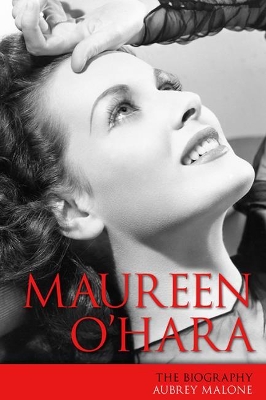Screen Classics
1 total work
From her first appearances on the stage and screen, Maureen O'Hara (b. 1920) commanded attention with her striking beauty, radiant red hair, and impassioned portrayals of spirited heroines. Whether she was being rescued from the gallows by Charles Laughton (The Hunchback of Notre Dame, 1939), falling in love with Walter Pidgeon against a coal-blackened sky (How Green Was My Valley, 1941), learning to believe in miracles with Natalie Wood (Miracle on 34th Street, 1947), or matching wits with John Wayne (The Quiet Man, 1952), she charmed audiences with her powerful presence and easy confidence.
Maureen O'Hara is the first book-length biography of the screen legend hailed as the "Queen of Technicolor." Following the star from her childhood in Dublin to the height of fame in Hollywood, film critic Aubrey Malone draws on new information from the Irish Film Institute, production notes from films, and details from historical film journals, newspapers, and fan magazines. Malone also examines the actress's friendship with frequent costar John Wayne and her relationship with director John Ford, and he addresses the hotly debated question of whether the screen siren was a feminist or antifeminist figure.
Though she was an icon of cinema's golden age, O'Hara's penchant for privacy and habit of making public statements that contradicted her personal choices have made her an enigma. This breakthrough biography offers the first look at the woman behind the larger-than-life persona, sorting through the myths to present a balanced assessment of one of the greatest stars of the silver screen.
Maureen O'Hara is the first book-length biography of the screen legend hailed as the "Queen of Technicolor." Following the star from her childhood in Dublin to the height of fame in Hollywood, film critic Aubrey Malone draws on new information from the Irish Film Institute, production notes from films, and details from historical film journals, newspapers, and fan magazines. Malone also examines the actress's friendship with frequent costar John Wayne and her relationship with director John Ford, and he addresses the hotly debated question of whether the screen siren was a feminist or antifeminist figure.
Though she was an icon of cinema's golden age, O'Hara's penchant for privacy and habit of making public statements that contradicted her personal choices have made her an enigma. This breakthrough biography offers the first look at the woman behind the larger-than-life persona, sorting through the myths to present a balanced assessment of one of the greatest stars of the silver screen.
